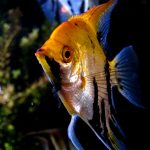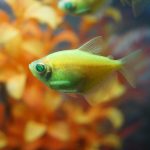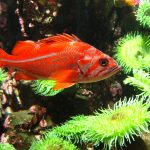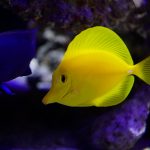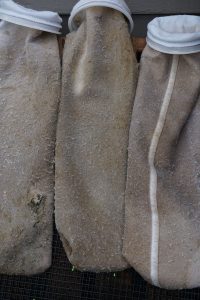 Mechanical filtration is ideally the first type of filtration on a life support system and is the most easily understood. Different types of mechanical filter media systematically trap waste, uneaten food and other types of solids making it easy for us or the owner to regularly remove them before they begin decomposing. If these wastes build up in a filter, in the substrate of a system or under rocks and other aquascaping, they quickly start to decompose, resulting in elevated ammonia levels, hypoxic areas with undesirable anaerobic bacteria and other conditions detrimental to animal health. In properly designed and built systems, this type of filtration comes before chemical and biological filtration so that these solids are removed before they get a chance to accumulate and impair the performance of these filters.
Mechanical filtration is ideally the first type of filtration on a life support system and is the most easily understood. Different types of mechanical filter media systematically trap waste, uneaten food and other types of solids making it easy for us or the owner to regularly remove them before they begin decomposing. If these wastes build up in a filter, in the substrate of a system or under rocks and other aquascaping, they quickly start to decompose, resulting in elevated ammonia levels, hypoxic areas with undesirable anaerobic bacteria and other conditions detrimental to animal health. In properly designed and built systems, this type of filtration comes before chemical and biological filtration so that these solids are removed before they get a chance to accumulate and impair the performance of these filters.
Some of the most common types of mechanical filtration include:
- Mechanical socks – Mechanical socks are usually made of synthetic material and are pouches with a plastic ring or drawstring around the top to hold it in place. These are made to trap particles as small as 10 microns but most are in the 200-micron range. The smaller the micron size, the quicker the sock accumulates solid wastes and needs to be cleaned and/or replaced before they begin to decompose. Typically, these socks are located in the first chamber of a sump, where the outflows direct water from the display.
- Mechanical floss – This filter operates the same way that mechanical socks do, but typically lay flat over a porous surface in a sump with coarser media placed over fine media. The coarse media traps larger particles and the fine media removes smaller particulate waste. You will also find filter floss in canister filters, hang-on-the-back (HOB) filters and other types of all-in-one filters. No matter the application, it is important to regularly clean mechanical floss for optimal system health and performance.
- Foam blocks – Popular in larval rearing systems and old school aquarium filtration, foam blocks act as mechanical and biological filtration and typically have a rigid airline in the middle. As the air bubbles rise in the airline, they create a current, which pulls solid wastes into the foam media, trapping it. The porosity of the foam also creates lots of surface area for biological filtration but there are many better ways to achieve mechanical and biological filtration, except for very specific types of life support systems.
- Sand filters – Used mainly in larger life support systems in public aquaria, research facilities and other higher-volume systems, sand filters used different grades of sand and gravel to filter out solids from aquarium water. Water is forced through these filter media from fine to coarser to coarsest before being passed on to the display or another type of filter. These filters operate under pressure and must be regularly maintained to keep the accumulated waste and biofilm from creating channels through the media, which greatly reduce the effectiveness of these filters.
Newer types of mechanical filtration enter the market all the time which are designed to make routine maintenance faster and easier for hobbyists and professional aquarists. However, we find that frequent maintenance of proven filtration media ends up saving time and money and results in better water, cleaner displays and healthier animals.
Fish Tank Maintenance Service Providers for Portland Area Homes and Businesses
Whether you’re a hobbyist or professional, regularly cleaning and replacing mechanical filter media may be one of your least favorite things to do but is also one of the most important ways to promote and protect the health of your animals. We find that mechanical media that is the hardest to see, such as the media in canister or HOB filters is also the easiest to overlook and forget about. If you dread cleaning and replacing the mechanical filters on your system but love having clean displays and healthy animals, let our professional aquarists take care of it for you. Just give us a call at (503) 784-4403 and ask us to add mechanical filter replacement to the services we provide for your system.
